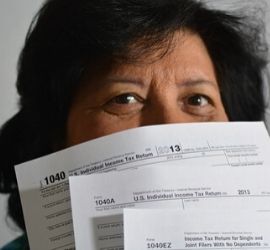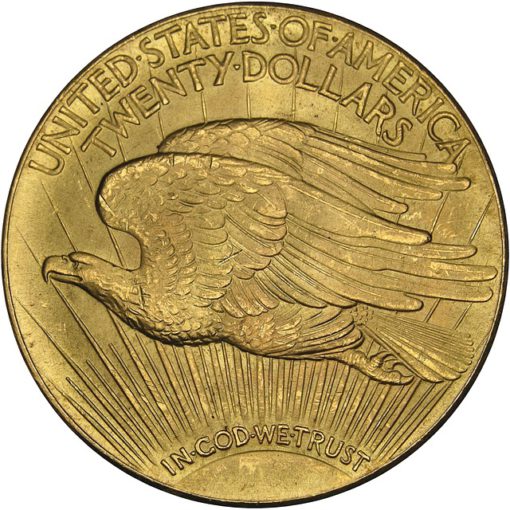Are Condos a Good Investment? Is Buying a Beach Condo a Good Investment?
What Is a Condo?
 Are condos a good investment? Let’s start with what a condo actually is. A condo, or condominium, is a private residence within a larger building or community. It can be a multi-story townhouse or a single unit in a high-rise with other condo units above and below. As an investment property, a condo can be rented out to tenants. This can make it seem very much like an apartment. The difference is ownership. Individuals own each condo. But apartments are rented out by someone who owns the entire building. A property owner purchases a condo and pays a monthly fee, in addition to the purchase price of the condo itself. This fee covers the maintenance and upkeep of common areas shared with other owners in the condo community. So, are condos a good investment?
Are condos a good investment? Let’s start with what a condo actually is. A condo, or condominium, is a private residence within a larger building or community. It can be a multi-story townhouse or a single unit in a high-rise with other condo units above and below. As an investment property, a condo can be rented out to tenants. This can make it seem very much like an apartment. The difference is ownership. Individuals own each condo. But apartments are rented out by someone who owns the entire building. A property owner purchases a condo and pays a monthly fee, in addition to the purchase price of the condo itself. This fee covers the maintenance and upkeep of common areas shared with other owners in the condo community. So, are condos a good investment?
Should you buy a condo as an investment property? It depends on some key things, as does any real estate investment. Most important are the property’s location and financial breakdown. Most importantly, the location has to be a desirable one with a qualified pool of tenants. Yes, a condo can be a good investment. Here are things to consider, both positive and negative.
Are Condos a Good Investment vs a House?
There are actually fewer differences than you might think between owning a condo and owning a house. Depending on where you buy, homeowners association costs can just be as high – or higher – than condo associations. They can also be just as restrictive about what you can do to the outside of your home, or with your yard. The difference from an investment perspective comes from what you actually own, and what you don’t. When you buy a house, you typically own everything including the land underneath your home and around it. You own the roof, the driveway, and in some places, you may even own the sidewalk in front of your home.
The same cannot be said for a condo. When you own a condo, you own the inside walls, what’s attached to them, and your floors. You don’t own the external walls, and shared walls will have their own rules based on the condo association guidelines. When you buy a home, you buy insurance for that home. You pay all of it. When you buy a condo, the condo association may pay for your roof insurance, for example. Sometimes, out of pocket expenses are less with a condo than with a house of similar value. Think of a house purchase as a completely whole purchase with nothing shared. Even if a homeowner’s association where the external things like yards, parking lots, sidewalks, and community areas are maintained, the homeowner owns their property and its plot. (Source: skyfiveproperties.com)
Are Condos a Good Investment – Do They Appreciate in Value?
The biggest question most buyers have about condos is whether they appreciate in value. This is especially in comparison to single-family homes. Condos appreciate the same way single-family homes do—based on supply and demand. And with real estate, it usually boils down to location.
Traditionally, single-family houses have appreciated more in value than a condo, but some recent trends indicate the tide may be turning, according to Pollock. In Fulton and Dekalb counties, which make up the majority of in-town Atlanta, she’s noticed that condo prices are appreciating more than single-family homes. Why’s that? She cites three reasons: Condos are typically lower priced (making them a natural entry point into the market), there’s an increased demand for walkable neighborhoods in city centers, and condos are rich in amenities, which is attractive to buyers. (Source: apartmenttherapy.com)
Yes, condos generally appreciate in value. That’s true of any piece of property—as long as it doesn’t have wheels or come from a trailer park. But, if you’re trying to decide between a condo or a house, keep in mind that a single-family home is usually going to grow in value faster than a condo will. For example: From 2017 to 2018, the median price for condos grew by 3% while single-family homes grew by over 5%. Now, that’s not the same for every situation. If you find a condo in a cool location and a single-family house in a lousy location, the condo will probably appreciate faster. So just make sure you find a cozy-looking condo in a sweet location and you’ll be fine. (Source: daveramsey.com)
Should I Buy a Condo? The Pros and Cons
If you’re a potential buyer in the real estate market, you may wonder, “Should I buy a condo?” Condominiums are generally less costly to purchase than houses or townhouses. They can also offer conveniences you might not otherwise be able to afford. In fact, many buyers are priced out of single-family homes in high-priced markets. Nevertheless, they may still qualify for mortgage loans on condos or co-ops. Condominiums can be a good investment, especially if they allow you as a buyer to enter the real estate market. Qualifying for financing is much the same as getting a mortgage for a single-family home. If you are purchasing a condo as an investment property, you should still be able to find a lender.
Are Condos a Good Investment – Pros
Affordability
As an investment, it’s typically less expensive to purchase a condo than a single-family home or townhouse with similar features. As a result, you usually need less out-of-pocket cash to get started. However, make sure the monthly rent you’re able to charge can support all your ownership costs, including the monthly condo association fee. The purchase price of a condo is usually less. But, homebuyers must still factor in that recurring fixed condo fee.
Increased amenities, decreased maintenance
Condo communities may offer amenities and common areas that you may not otherwise be able to afford if purchasing a townhouse or standalone house. This can include swimming pools, parking garages, and tennis courts. Additionally, condos can relieve you of the need to manage the building maintenance and any amenities. Even some interior issues such as plumbing and electricity may be managed by the complex’s community association. You still own your unit, however, so you can decorate and personalize more than you are allowed to as a renter. If you’re used to fixing things yourself, however, you may not always want to wait for the association to do the job. Some repairs might even require that you get pre-approval before you call a repairman. Also, the association may make a special assessment for large projects, which you may not always agree with.
Amenities
A big benefit of condo living is access to high-quality community amenities. There’s often a club room, pool and fitness room. These amenities are very attractive to many tenants, which helps you keep your unit rented. Properties with attractive amenities are often in high demand. That can mean a quick turnover when a tenant moves out. Short vacancies are an investor’s best friend when it comes to managing cash flow.
Less Maintenance
One of the biggest benefits of condo ownership is that other people do the exterior property maintenance for you. For example, neither you nor your tenant bears the responsibility to shovel the snow or mow the lawn. As a condo owner, you don’t have to budget for big expenditures like replacing a roof. You own the space inside the condo but not the building’s exterior structure. So you have to worry only about maintaining the appliances and systems contained within your unit. The condo association takes care of the expense and the hassle of building maintenance and the grounds. However, there are no hard and fast rules that apply to all condominiums. Each association decides what the condo association is responsible for and what the owners are responsible for. Be sure to read the condo association documents carefully before buying.
Built-in neighborhood
Condos can be great owner-occupied properties. Proximity to your neighbors and access to shared areas means there will be opportunities for you to meet new people. However, you’re likely to have less privacy when you’re sharing walls and building access. Neighbors might also be able to over-hear your conversations or see when you come and go. Before buying, check to see if the other condo owners are friendly and seem likely to be people with whom you would get along. Make sure the building is constructed to minimize noise. If you’ve always lived in a single-family residence, consider renting a condo or apartment before you buy.
Pride of ownership
Many condos have a high owner-occupancy rate. The bylaws often state that only a percentage of the owners can rent out their unit. Often, this translates into a pride of ownership that encourages community and responsible care of the property. Owners typically take better care of their property and the shared community resources than renters do. That can translate into a more attractive, long-term investment for you.
Security
Many condo buildings have enhanced security. You usually need a key to access the building before getting to the front door of your unit. Each unit is equipped with an intercom that residents can use to “buzz in” approved guests and visitors. This added security makes residents feel safer and keeps out solicitors. Keeping out unwanted solicitors alone is an attractive feature that many tenants will likely enjoy.
Condo rules can preserve your investment property’s value
There are typically more rules to follow as an owner in a condo community. You’ll need permission from the condo association to make changes to your unit, inside or out. Chances are you can’t change the color of your front door, for example. Often, residents are prohibited from conducting any business activities from a home office. Condo rules are likely more stringent than similar properties not deemed a condo. This helps to deter unwanted activity that leads to property depreciation.
Condo rules and regulations are often exactly what’s needed to keep a tidy community that benefits all owners. Your tenant may not be able to grow herbs in pots on the patio, but you also won’t have to worry about a neighbor’s patio becoming a storage space for junk. I like to invest in rental properties where there’s a modest condo or homeowners association (HOA) fee. The association serves as a policing force that prevents owners from neglecting their property and discourages bad behavior by residents. This helps maintain home values and makes the property attractive, which is important whether I’m seeking new tenants or looking to sell the property. (Source: investorjunkie.com)
Are Condos a Good Investment – Cons
You don’t own the land with a condo
A condo building is a building or complex consisting of multiple apartments that are individually owned. However, the building itself is owned by an individual or a property management company. Condo unit owners do not hold the title to the land on which the structure sits. This means the value of the property you own will consist solely of your condo. Don’t confuse a condominium with a co-op:
- With a condo, you own a specific part of the building structure, and the use of common areas.
- With a co-op or housing cooperative, you own a share of the real estate. As a real estate shareholder, you have the right to live in a certain unit.
Neighbors behaving badly
In any community, you’ve got neighbors. You may have neighbors above, beside and below you. There’s a good chance at some point in your ownership that you or your tenant will end up getting a neighbor you wish hadn’t moved in. If the neighbors are undesirable to live next to, you may have a hard time keeping your tenant happy. This can result in higher-than-desired vacancies and constant tenant turnover. And as an owner, you likely have to personally handle grievances with your neighbors, which can be frustrating and time-consuming. Not all owners are responsible and considerate.
In one of my condos, I discovered there was water damage to the bedroom closet ceiling. The cause turned out to be an air conditioner leak in the unit above mine. The condo association did nothing to help me resolve the issue. I had to take the owner to court in an attempt to get reimbursed for my repair cost. My plumber gave me written verification that the damage to my unit was caused by their air conditioner (which is directly above the obvious leak), but I still lost in court. Their plumber friend contradicted the obvious, and the court sided with them. I was stuck paying the cost of mold remediation and drywall repair. (Source: investorjunkie)
Condo fees and special assessments
Condo fees generally go up every few years with the cost of inflation. In addition to monthly fees, you may get hit with a one-time special assessment. A special assessment is an additional fee assessed on each owner for a special project, like repaving the parking lot. If you don’t budget for increasing fees, you could get into a position where you can’t afford the condo fees or special assessment.
Financial mismanagement potential
Condos are governed by an association board. Membership is often made up of community condo owners who volunteer or are elected. Typically, a group of investors owns the condo buildings. They then hire a property management company to administer the collection of condo fees and manage the community. State governments require that condos create and follow legal governance. This includes the preparation of bylaws and articles of incorporation. Nevertheless, there’s still a risk that the condo association could mismanage funds and even become insolvent.
Property mismanagement potential
If the condo association does a poor job of maintaining the common grounds, it can reflect poorly on the entire community. As an owner, you rely on them to do what they say they’re going to do to maintain the esthetics and value of your property. Their inaction to make necessary upgrades and properly manage the building and community can negatively affect your long-term property appreciation. Poor management can also drive away quality tenants from wanting to rent your unit.
Condo rules can be overly restrictive
Most condo communities limit the number of units that can be rented. If the limit is already met, you can’t rent out your property. And the condo association likely limits the number of occupants, the length of the lease, and other restraints on usage. These policies are meant to preserve the community ambiance. Without rules, the residences could feel more like an apartment building rather than an owner-occupied community. Make sure you can rent out your condo before you buy it. Carefully ensure you and your tenants are able to comply with the condo requirements as leased property.
Selling may take longer
There can be a smaller pool of condo buyers than buyers for single-family homes. So when it’s time to sell, you may be looking at a longer number of days on the market. But again, it all depends on the location. Condos in hot areas sell faster than houses. (Source: investorjunkie)
Be wary if there are many condos for sale in the building
Unless a condo community is a brand-new construction, you should carefully consider purchasing in a community with many properties for sale. Multiple vacancies is a red flag that could indicate a number of problems. It could mean that there is a high level of dissatisfaction with the building and living conditions. If more vacancies occur, the association may fall behind on upkeep and lose its reserve fund. Lenders may eventually refuse to make loans for new purchases, or they may require a larger down payment. All this could lead to a difficult time when you want to sell or refinance.
If you do find your dream home in a community that seems slightly abandoned, try to chat with a resident or two when you tour the condo to see if there are any red flags. Ultimately, keep these questions in mind: Do you like the condo’s size? Is it in the right neighborhood? Is the building properly maintained and are the amenities to your liking? Can you comfortably afford the mortgage, including homeowners association fees? Are condos a good investment? These considerations will point you in the right direction of a condominium that has everything you want in a home. (Source: propertyhunter.com)
Frequently Asked Questions
Are condos a good investment as a first home?
There’s nothing quite like owning your first home. But does a condo make a good candidate for your first home? It depends on your personal lifestyle. If you don’t want to rent and want to put your money in real estate, it can be a perfect choice. Especially for someone worried about having time for upkeep, or perhaps travels for work frequently. Because of the association fees that condo owners pay, there’s much less maintenance the homeowner has to do. Someone else is responsible for mowing the lawn or gardening. This can be a huge bonus for those who have no interest in or don’t know how to do yard work. You wouldn’t be solely responsible for expensive repair work like roof replacement. The shared ownership makes it a good way to slowly understand real estate ownership and upkeep.
Are condos a good investment as a rental?
Condos, in general, are less expensive than single-family homes. Does this make them a good starting point for homebuyers interested in becoming landlords? This largely depends on what the Association’s rules are on renting out individual units. Your rental income will need to cover your mortgage and costs to maintain the property. Condo association fees are really going to impact whether or not a condo is a good investment for you. You’ll need to set the rent high enough to cover all of those costs.
Are condos a good investment instead of renting?
Maybe, you are a lifelong renter who is thinking about entering the housing market. Are you wondering if it’s better to remain a renter (and wait until you’ve saved enough for a single-family home) or go ahead and buy a condo?
Jesse Sheldon, a real estate agent in Kirkland, Wash., says it’s often best to just jump right in and buy the condo. “If you are a renter, I would consider how long it would take you to afford a single-family home. That could potentially be five years away. Whereas you could be building equity in a condo right away,” Sheldon says. “A condo is very often someone’s first step into homeownership.” Of course, every individual’s experience and finances are different, but talking to an agent about long-term financial goals would be a good place to start while figuring it out. (Source: Jesse Sheldon)
Are Condos a Good Investment as a Vacation Home?
Let’s say you want to buy a condo near your favorite vacation spot. If you buy a condo near a beach, lake, or tourist hot spots like a National Park or Disneyland, then you’ll have plenty of renters to choose from all year long.
Just imagine: You’d have your own private getaway on the beach. You could say “So long!” to those brutal winter months without moving away from family and friends. And, when you’re not using it, it doubles as a vacation condo you can rent out to others. Cha-ching! But, because you’ll have a revolving door of renters instead of one occupant and you won’t be living near the property, you’ll probably need to hire a management company to handle upkeep and administrative work for you—and that can cut into the profit. The plus side is that you can charge more per stay than the monthly rate for a single-tenant condo. And you can use the space yourself anytime you want. (Source daveramsey.com)
Are Condos a Good Investment – The Bottom Line
Read all the governing documents carefully prior to making an offer on a condo. If possible, talk with a few of the neighbors. They’ll tell you how well the condo association manages the community. They may even share the inside information on what it’s like to live in the building. With any real estate investment property you’re considering, run your numbers. Make sure the rent will cover the condo fee, as well as all other costs associated with owning and managing a rental property.



